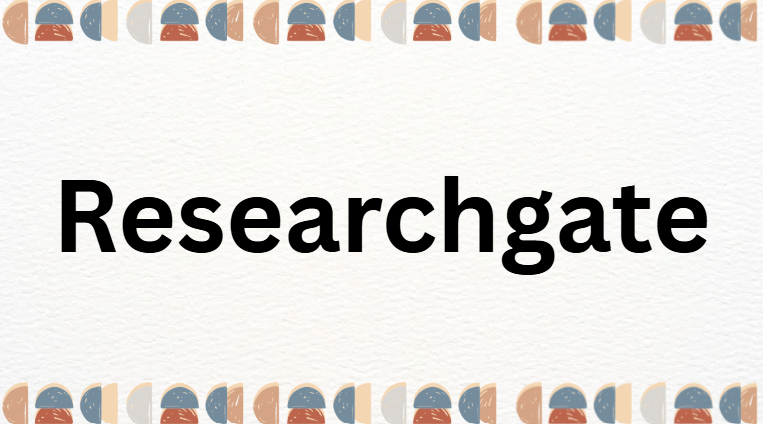ResearchGate is one of the world’s most popular online platforms for researchers, scholars, and students. It allows people to share their research work, find studies, connect with experts, and discuss academic ideas. Since its launch in 2008, ResearchGate has grown into a large community where millions of users exchange knowledge daily.
The platform is often described as a “social network for scientists” because it combines features of academic publishing with networking.
What is ResearchGate Used For?
ResearchGate is mainly used to:
- Share research papers and publications.
- Discover the latest studies and scientific findings.
- Connect with researchers around the globe.
- Ask and answer academic questions.
- Track the impact of one’s own research through metrics.
Whether you are a student writing a thesis, a professor publishing articles, or a scientist working on experiments, ResearchGate provides tools to make your work easier.
How ResearchGate Works
1. Creating a Profile
Users create a profile with their name, university, work history, and research interests. This profile acts like an academic resume.
2. Uploading Publications
Researchers can upload their published papers, articles, or even drafts. Some works are open access, meaning anyone can read them, while others may require a request for the full text.
3. Connecting with Others
Just like a social network, you can follow other researchers, send messages, and join discussions on ResearchGate.
4. Research Metrics
The platform gives you insights into how often your work is read, cited, and downloaded. This helps track the real impact of your research.
Benefits of Using ResearchGate
- Free Access: Joining and using the platform is free.
- Global Reach: Connect with scientists and scholars worldwide.
- Research Impact: See how many people are reading or citing your work.
- Collaboration: Find experts in your field and start joint projects.
- Knowledge Sharing: Ask questions and get answers from professionals in your area of study.
Who Can Use ResearchGate?
ResearchGate is designed mainly for:
- University professors
- PhD students
- Researchers in science, medicine, and technology
- Academics in social sciences and humanities
- Students who want to explore research material
While anyone can create an account, the platform is most valuable for people working in education and research.
Is ResearchGate Reliable?
Many students and new researchers ask whether ResearchGate is a trustworthy source. The answer is: ResearchGate is reliable for networking, but not always for verified academic sources.
Why?
- Many publications on ResearchGate are peer-reviewed and safe to use.
- However, some uploaded materials may be unpublished drafts or preprints.
For academic writing, it is always better to double-check the original journal or publisher.
ResearchGate vs. Google Scholar
Both ResearchGate and Google Scholar are useful, but they serve different purposes:
- ResearchGate: A social network where you can connect with researchers, ask questions, and track impact.
- Google Scholar: A search engine that helps you find scholarly articles from many publishers and databases.
Many researchers use both together for better results.
Common Challenges on ResearchGate
While ResearchGate is powerful, users may face some issues:
- Not all papers are freely available.
- Some researchers may not respond to requests for full texts.
- Certain institutions may prefer other databases for official citations.
Still, most users find it an excellent platform for collaboration and discovery.
Future of ResearchGate
ResearchGate continues to expand by adding new features and improving connections between researchers. With growing importance of open-access publishing, the platform is expected to play a bigger role in global education and scientific research.
FAQs
Q1: Is ResearchGate free to use?
Yes, creating an account and using most features of ResearchGate is free.
Q2: Can students use ResearchGate?
Yes, students can join ResearchGate, explore papers, and connect with researchers. It is especially useful for thesis writing and academic projects.
Q3: How do I download full-text papers?
Some papers are freely available. If not, you can request the full text directly from the author with one click.
Q4: Is ResearchGate better than Google Scholar?
ResearchGate is better for networking and collaboration, while Google Scholar is stronger for searching verified published articles.
Q5: Can I publish my work on ResearchGate?
Yes, you can upload your published papers, preprints, or drafts, depending on the copyright rules of the publisher.
Q6: Is ResearchGate only for science researchers?
No. While it is popular in science and medicine, people from social sciences, engineering, and humanities also use it.
Q7: Are ResearchGate papers peer-reviewed?
Not always. Some papers are peer-reviewed journal articles, while others may be unpublished drafts. Always check the source for academic work.
Conclusion
ResearchGate is a valuable tool for researchers, students, and academics. It helps in sharing knowledge, finding new studies, and building global connections. Although it should not replace trusted academic databases, it is still one of the best platforms for networking and academic growth.


